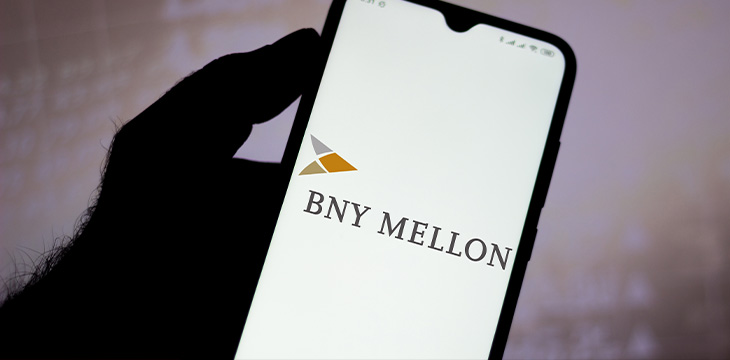
|
Getting your Trinity Audio player ready... |
How are institutional investors currently investing in and strategizing around digital assets and blockchain technology? Recently, BNY Mellon surveyed over 270 institutional investors and asked them questions about digital assets to find out what investor appetite is, what approaches they are currently taking in the digital asset market, what their fears are when it comes to digital currency, and more.
Here are the key takeaways from BNY Mellon’s 40-page report, “Institutional Investing 2.0: Migration to digital Assets Accelerates.”
What investors are afraid of
The BNY Survey found that 76% of the institutional investors surveyed are either “exploring” digital assets or already have some direct allocation to digital assets. However, many of the investors reported said there are still several pain points when it comes to the digital asset market; 43% of institutional investors stated that because there is a lack of regulatory clarity in the blockchain and digital asset space, they would only be comfortable trading digital assets with a “traditional financial institution” that they know is well-capitalized and unlikely to run into liquidity issues that lead to disasters like the fall of Terra Luna and Three Arrows Capital.
On top of that, 19% of respondents said their compliance teams would not approve of a crypto-native service provider.
In other words, institutional investors are very interested in digital assets, but in many instances, they aren’t comfortable using a blockchain-native service provider due to the lack of regulatory clarity around their operations. What institutional players are looking for and waiting for are traditional financial institutions to integrate blockchain/digital asset services into their current operations so that they can give their business to an entity that is regulated and has a track record of trust and success when it comes to assets, money and the activities that surround both.
The data BNY Mellon collected from the survey may have been a catalyst in the bank’s decision to launch a digital asset custody service to cater to the institutional investor audience that is interested in allocating to digital assets but has trouble doing it through the decentralized service providers that offer the solutions they are looking for.
What are investors looking forward to:
About 97% of the respondents believed that tokenization would revolutionize asset management” and “be good for the industry.” The respondents claimed that some of the biggest benefits of tokenization in money markets would be faster settlement times, increased liquidity, and increased accessibility for all investors to asset classes like private equity funds and real estate.
Interest by location:
It’s important to note that institutional investor interest in digital assets varies by location. The survey found that 75% of the respondents located in Hong Kong and Singapore were currently invested in or exploring digital assets, followed by 60% of respondents in Brazil, 53% in the U.K., 49% in the U.S., and 48% in Europe.
The report cites several factors that explain this geographical disparity. In Hong Kong and Singapore, digital assets are regulated by the Securities and Futures Commission (SFC) and the Monetary Authority of Singapore (MAS). In addition, Hong Kong and Singapore were the first movers on blockchain trends like ICOs, which shows they aren’t afraid to allocate and explore new technologies and investment opportunities.
In other areas of the world, digital assets remain in a regulatory grey area with increasing regulatory scrutiny and law enforcement taking place around blockchain native entities, projects, and teams, causing citizens and residents to proceed with caution or watch from the sidelines because they are unsure of what is and isn’t legal.
What investors are looking for
There was a central theme throughout the BNY Mellon survey, institutional investors are very interested in digital assets, but “key conditions” must be met before they turn their research into actual investment in the space. Among these conditions are regulatory clarity and an increased number of globally trusted service providers that are regulated and have a track record.
“Institutional Investors expect to mix both traditional and digital assets in their portfolio and have a strong preference for fully integrated providers across all their digital asset needs,” says the report.
This may be another one of the reasons that BNY Mellon recently added digital asset custody (holding and transferring of BTC and ETH) to its service offerings. Institutions have an appetite for digital assets, and client demand is forcing them to enter the digital asset space. However, institutional entities want to work with trusted players in the financial world rather than startups or decentralized service providers. In that regard, it is much easier for a “traditional” financial institution to add support for digital assets than for a “decentralized” financial institution or service provider to add support for traditional financial instruments.
BNY Mellon’s digital asset custody product is just the beginning of BNY Mellon’s digital asset-related service offerings, said someone familiar with the matter. This implies that BNY Mellon and other trusted financial service incumbents will likely begin making their institutions one-stop shops where clients can meet their equity, commodity, and digital asset demands in one location.
“Digital assets are here to stay,” said Michael Demissie, the head of the digital assets unit and advanced solutions at BNY Mellon.
“We are on a journey towards a future where blockchain and related capabilities will transform the financial services landscape…At BNY Mellon, we see cryptocurrencies as the tip of the spear and recognize the opportunity this technology offers, extending to and beyond tokenized assets and digital cash. We are in the early, yet formative, days of digital asset evolution. As with every other financial innovation, trust is essential,” he added.
Watch: The BSV Global Blockchain Convention panel, Re-Inventing Business with Blockchain
Recommended for you
Lorem ipsum odor amet, consectetuer adipiscing elit. Elit torquent maximus natoque viverra cursus maximus felis. Auctor commodo aliquet himenaeos fermentum
Lorem ipsum odor amet, consectetuer adipiscing elit. Accumsan mi at at semper libero pretium justo. Dictum parturient conubia turpis interdum

 11-22-2024
11-22-2024


